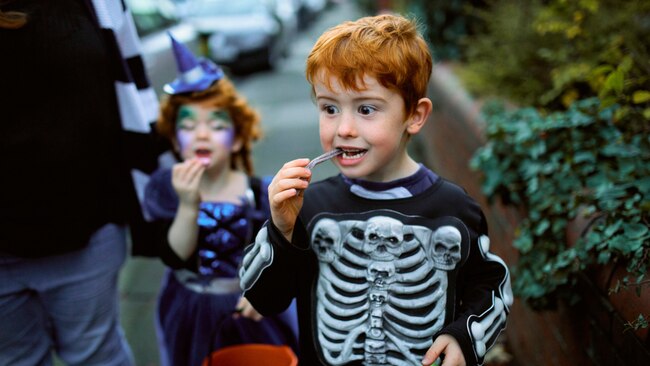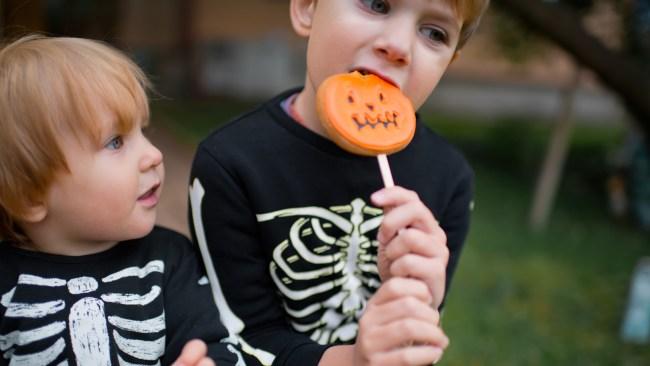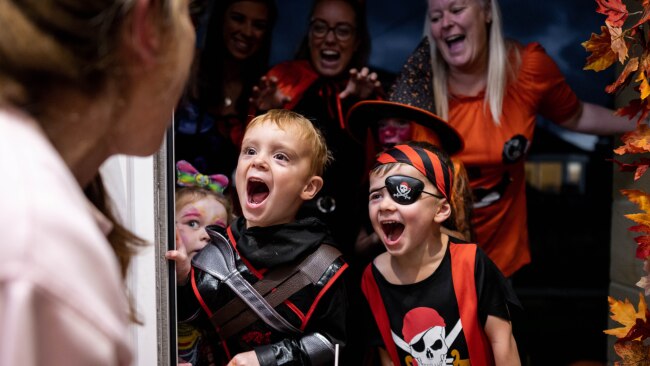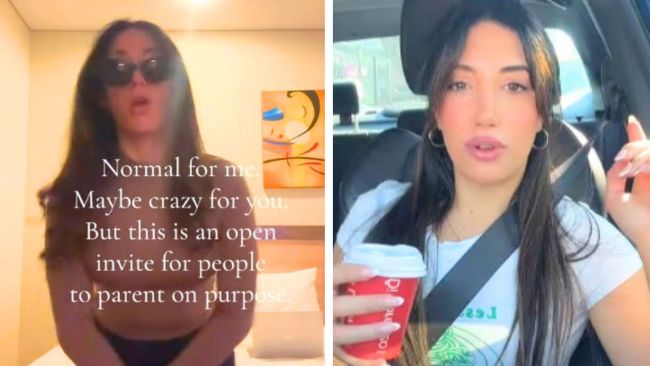Were your kids on a sugar high last night? Experts say it’s all in your head
Last night you watched your little ones eat their body weight in lollies that made bedtime even more challenging. But what if we told you that the 'sugar-induced hyperactivity' might be more myth than reality?

Primary School
Don't miss out on the headlines from Primary School. Followed categories will be added to My News.
Halloween night – the annual candy extravaganza that leaves your kids gleefully clutching their treasure troves of sweets.
But this evening goes against everything a parent tries not to do: give their kids sugar at night.
Bedtimes are complicated enough on the best nights, but now your little one is filled with lollies and chocolates, and sleep seems to be replaced by them bouncing off the walls.
For years, sugar has shouldered the blame for hyperactive behaviour in children.
You wouldn't be wrong to think sugar turned kids into energetic whirlwinds. But are these suspicions grounded in science, or is it all just a sweet myth?
Want to join the family? Sign up to our Kidspot newsletter for more stories like this.
The expert’s take
Gideon Meyerowitz-Katz, an epidemiologist at the University of Wollongong in Australia, has a bone to pick with the sugar-hyperactivity notion.
In a recent Twitter post, he dispelled the idea, stating, “The evidence doesn’t stack up. The science shows pretty conclusively that sugar itself doesn’t make children hyperactive. The grand urban myth is just that: a myth.”
It’s easy to see why sugar has been pegged as the culprit. Our bodies convert sugar into glucose, a simple sugar that provides energy.
The rapid processing of Halloween lollies’ sugar might give kids a temporary boost in energy.
Still, it doesn’t lead to sustained hyperactivity.
RELATED: Six foods that contain hidden sugar

The studies that debunked the myth
The ’90s saw a series of studies that dismantled the sugar-hyperactivity link.
One notable study from 1994 told mothers that their children had consumed either sugar or an artificial sweetener.
Strangely, even when the kids had only had the artificial sweetener, mothers who believed their children had consumed sugar rated them as more hyperactive.
This indicates that it was the expectation, not the sugar, that triggered perceived hyperactivity—a self-fulfilling prophecy.
Some studies suggest that sugar may have opposite effects, making people more focused and less aggressive.
However, experts caution that these findings are based on weak evidence and should be taken with a grain of sugar- err, salt.
RELATED: Random candy cane fact has people amazed

The power of expectation
Dr. Meyerowitz-Katz believes the sugar-hyperactivity belief is mainly driven by social factors.
People expect sugar to make kids hyper, so they see overexcited children and assume they’ve had a sugar rush.
This creates a ‘vicious cycle of confirmation bias’ that doesn’t align with scientific studies.
It’s not just adults perpetuating the sugar-hyperactivity myth. Children themselves are aware of its power.
As Dr. Sabiha Kanchwala, a general pediatrics specialist, noted, “Even children know the power of their brains.
They say, ‘I ate all this candy, I’m never going to go to sleep!’”
It seems the myth endures, but science tells a different story.
A sweet reminder
So, next time your kids indulge in way too much sugar, you can rest assured that sugar alone isn’t the culprit behind their post-candy antics.
It’s all in the power of perception, and the sugar-hyperactivity myth is sweeter than fiction.
Originally published as Were your kids on a sugar high last night? Experts say it’s all in your head


